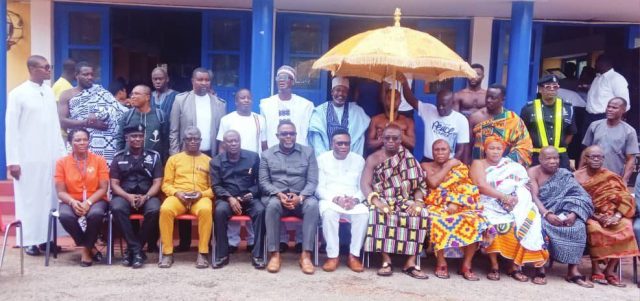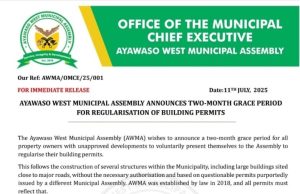Ghana must move beyond adhoc efforts that seek to promote peace during elections by instituting mechanisms geared towards preventing the outbreak, escalation, and recurrence of conflicts in the country.
The Most Reverend Prof. Emmanuel Asante, former Chairperson of the National Peace Council (NPC), who made the call, said the situation where stakeholders went to sleep after intensive peace campaigns during elections must give way for continuous dialogue and peace building.
“Let us constantly be in conversation on issues that have the potential to divide us and plunge us into conflict with a view to ensuring peaceful co-existence,” he said at a symposium organised by the NPC to commemorate the 2024 World Peace Day in Kumasi.
The event, which brought together key actors in the 2024 general election formed part of efforts by the NPC to foster peace in the region before, during and after the election.
Participants included religious leaders, political party representatives, students, security agencies, and the media.
The former Chair of the NPC called for serious commitment to peace building, which involved dialogue among stakeholders, promotion of human rights, and the Sustainable Development Goals.
He said sustainable peace focused on addressing the problems of today without compromising future peace.
The lack of political will to tackle the wanton destruction of the environment and water bodies, he noted, was akin to a father enjoying the inheritance of his children with reckless abandon.
“I allow illegal mining, the destruction of our water bodies and forests, because if I did not allow that I would lose votes, I have compromised our future environmental security,” the revered Professor illustrated.
Such a situation has dire consequences for our well-being and existence,” he maintained.
He said sustainable peace had an eye for today and the future, stressing that whatever decisions that are taken today must also consider the consequences tomorrow.
He reminded Ghanaians that community involved our ancestors, the living, and generations yet unborn, hence we hold what we have today as a legacy and a heritage from our forebears in trust for posterity.
According to him, sustainable peace was driven by peacebuilding, which aimed at the causes of conflict as opposed to peace-making which addressed symptoms of violence.
He, therefore, reiterated the need for all relevant stakeholders to continue engaging to address the causes of conflicts and violence across the country beyond elections to achieve sustainable peace as a country.









![“It’s hard to say goodbye” – Christian Atsu’s wife composes emotional tribute song for him [Video]](https://ghananewss.com/storage/2023/05/Christian-atsu-and-wife-100x75.jpeg)






